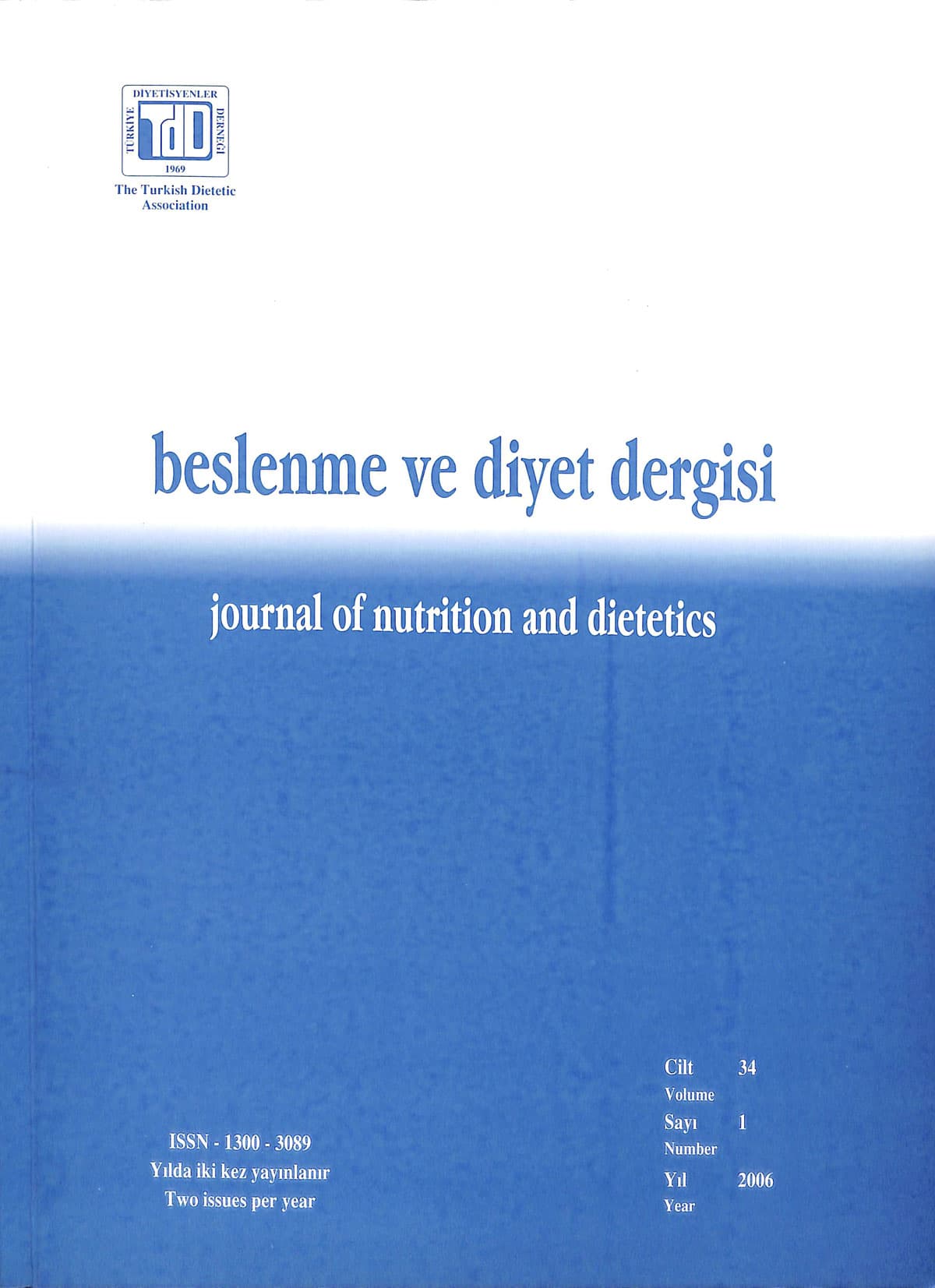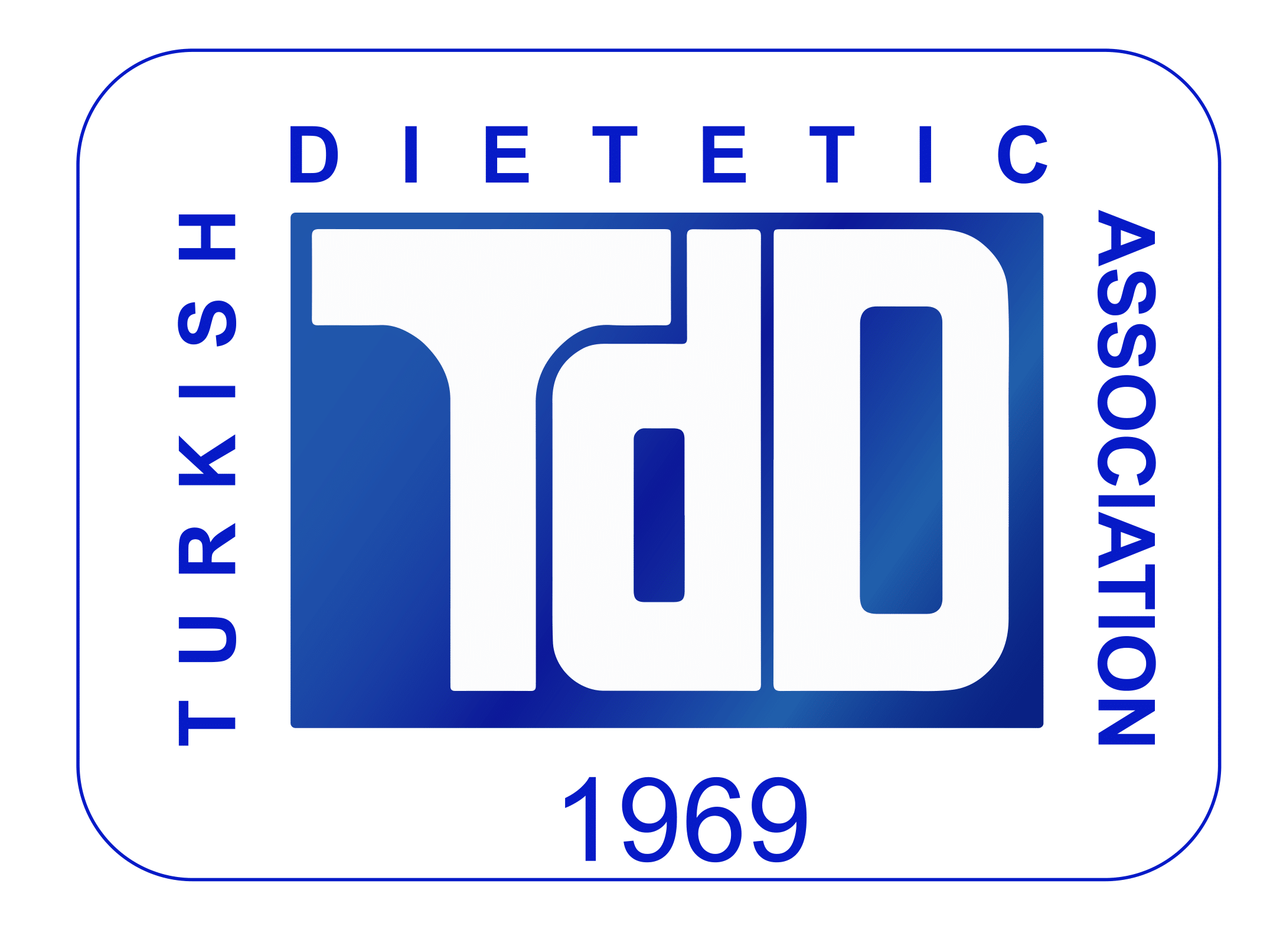The determination of nutritional status of patients with Alzheimer type setıile dementia
Keywords:
Alzheimer, nutrition, vitamin B12, folic acid, homocysteine, body compositionAbstract
This study was carried out to determine the nutritional status and the relationship between cognitive funetions and fo o d consumption o f patients with Alzheimer type senile dementia. The study was conducted on 20 elderly patients (12This study was carried out to determine the nutritional status and the relationship between cognitive funetions and fo o d consumption o f patients with Alzheimer type senile dementia. The study was conducted on 20 elderly patients (12males, 8 fem a le s) with new diagnosis o f Alzheimer type semle dementia who were admitted to the Dementia Clinic o f Gülhane Military Medical Academy Neurology Department and 20 healthy elderly individuals (7 male, 13 female). A questionnaire and an evaluation o f the cognitive functions using a mini mental status examination (MMSE) test were applied to ali participants. Anthropometric measurements, body composition with bioelectric impedance analysis (BIA) and biochemical analysis were performed and consecutive 3 day food consumption with physical activity records were obtained fo r ali participants. MMSE test values were 18.3±0.5 points in Alzheimer disease patients, but were 27.3±0.3 points in the control group (p<0.05). According to food consumption only the differences betvveen carbohydrate, heme iron and sodium consumption o f Alzheimer disease patients and control group were found to be statistically signifıcant (p<0.05). There were no signifıcant differences between the two groups in physical activity, basal metabolic rate (BMR) and total energy expenditure (p>0.05). In addition, no signifıcant correlations were found between MMSE test values and energy and nutrient consumptions in these two groups. However, it was found that waist and hip circumference (cm), triceps skinfold thickness (mm), body fa t mass (kg) and body water (%) (p<0.05) yvere dijferent between the two groups o f males and this was statistically important. According to biochemical analysis, serum alkaline phosphatase, total protein, albumin, transferrin levels o f women and serum vitamin B12 levels o f men were signifıcantly different in both groups (p<0.05). In general, it was found that serum transferrin, prealbumin and serum vitamin B12 levels in Alzheimer disease patients were significantly higher than the control group (p<0.05). There were negative correlations between serum homocysteine and serum vitamin B12 levels in Controls (r =-0.642, p<0.01) and between MMSE test values and serum homocysteine levels in the Alzheimer disease patients group (r =-0.606, p<0.0l). According to the fındings o f this study, it was concluded that monitoring serum vitamin B12 and folic acid levels and management o f balanced nutrition at ali stages o f the Alzheimer disease would be benefıcial.

